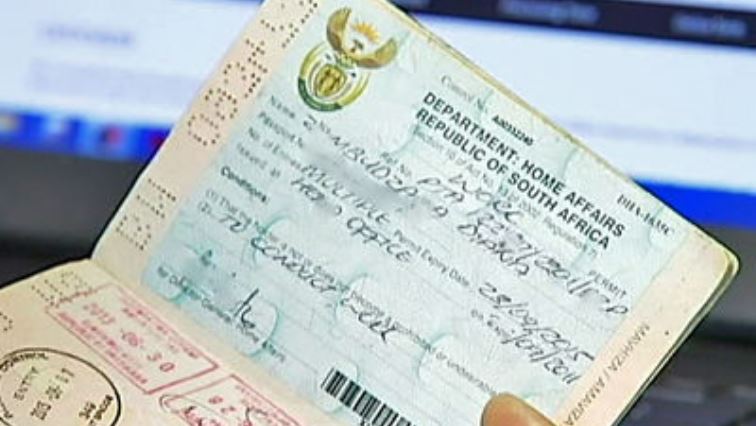The ZEP from Home Affairs Photo SABC
South Africa – Home Affairs Minister, Aaron Motsoaledi has sought permission to approach the Supreme Court of Appeal to challenge a previous judgement. On June 28th, the court granted a 12-month extension to the ZEP after determining the minister’s decision to terminate the ZEP was “illegal, unconstitutional, and void”. This move has raised concerns among ZEP holders and organisations like the African Diaspora Forum, who were initially elated by the judgement.
The prospect of overturning the judgement poses a significant threat to a ZEP permit holder’s future. It introduces a delay in the adjudication of their permit statuses, pushing them further into uncertainty, said Dr Vusimuzi Sibanda, chairperson of the African Diaspora Forum.
“If the minister is indeed granted leave to appeal, he may take his time up until he approaches the Supreme Court of Appeal. In the meantime, that will leave you ZEP holders in limbo and again, without much protection because for as long as he manages to appeal it, it means that the judgement is therefore put at bay. There would have to be a need to approach the court again to get an interdict. While the case is pending, no deportation will happen to these ZEP holders.”
These permit holders have been residing in South Africa for a substantial period, and their hope was that, given the time they’ve spent in the country, their ZEPs would eventually be transformed into permanent residence permits.
Who holds the ZEP
Many ZEP holders are professionals and semi-professionals who play a vital role in South Africa’s economy. Among them are educators, including science and mathematics teachers. These professionals have made significant contributions to the educational sector and other fields.
“We’ve also had the minister saying maybe some of them must apply for critical skills but the process and the pathway has not been easy … These are people that have been contributing and will continue to contribute to the economy. Especially when you look at the scarcity of STEM educators and other professions these people are involved in.”
These individuals are different from those who have entered the country illegally. They are law-abiding residents who have integrated into South African society and made substantial contributions to its growth. Their potential displacement due to the appeal process threatens not only their well-being but also the stability of various sectors in South Africa.
SMread: National State Enterprises Bill: A path to reform or continued challenges?
No home to return to
For many ZEP holders, South Africa has become a second home over the years. The political and economic situation in Zimbabwe remains challenging, making a return undesirable and, in some cases, unsafe. Some permit holders have spent a significant portion of their lives in South Africa, and their children have grown up here. The prospect of returning to Zimbabwe, a place they may not have a connection to anymore, is daunting.
William Mokhare, advocate for Motsoaledi, told the High Court, during a virtual hearing on Monday, that Motsoaledi agreed that the ZEP issue was “not only a matter of great importance and considerable public significance, but…a matter that raises huge constitutional implications”.He recalled that the reasons for the special dispensation was political and economic “instability” in Zimbabwe. Since this seems to have subsided, “the court cannot interfere with the decision to terminate if the executive [the government] concludes that those conditions are no longer prevalent. And therefore, this dispensation must come to an end,” he argued.
However, his view of the current situation in Zimbabwe is not the same as Sibanda who argues that not much has changed in Zimbabwe.
“In 2018 six people were shot with live ammunition by soldiers. With the current elections just ended, the report from the SADC Observer team has basically said that the elections were not free neither were they fair nor were they credible. Considering that there were state agents that seemed to be intimidating people all over the show, it definitely does show that Zimbabwe has not changed from what it was when the permits were issued.”
It is anticipated that the court will provide a judgement after the mid-term recess.Therefore, we can expect to hear the decision sometime in the middle to the end of October.
The quest to overturn the judgement regarding the ZEP has far-reaching implications for its holders. It introduces uncertainty, potential legal battles, and the prospect of returning to a country they no longer consider home. South Africa has become their second home, and their contributions to society are undeniable. The outcome of this appeal will shape their future and the stability of various sectors in the country.
